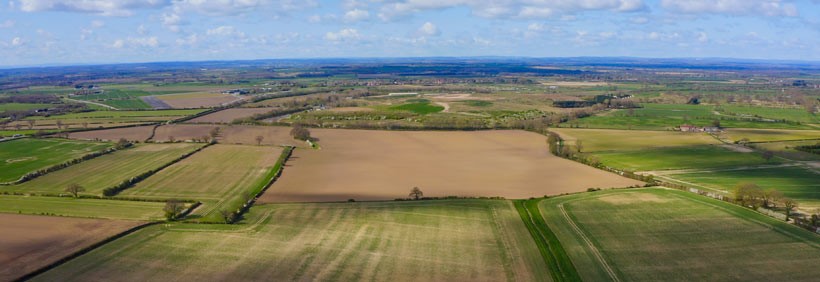City of York Council is creating an extensive community woodland on 78 hectares of land to the West of York with the ambition to plant 50,000 trees by 2023 as a nature based solution to climate change mitigation.
The challenge
In 2019, City of York Council announced a climate emergency and have since set an ambition for York to be a net-zero carbon city by 2030. We recognise the threat of climate change and also the importance of acting now to protect our climate for the future.
Even under the most ambitious pathways, achieving net zero carbon through emissions reduction alone will be unlikely. Changing land use to offset emissions across the city is therefore an important part of the solution.
The solution
The new woodland will be a well-designed, bio-diverse, green space providing a place for peaceful contemplation and leisure for the people of York. This will create a new stray for the city, enhance the setting of the city and make York an even greater place to live, work and visit, as well as acting as a small ‘carbon sink’.
The Woodland’s design has been shaped by extensive community and stakeholder engagement and will incorporate opportunities for ongoing community involvement.
The project is working in partnership with a number of woodland experts including the Forestry Commission, Woodmeadow Trust and Woodland Trust. The council is also a member of the White Rose Forest partnership covering West and North Yorkshire, one of four Community Forests in the north of England contributing to the Northern Forest initiative.
The impact
In July 2020, City of York Council joined the government’s Northern Forest initiative, which aims to plant 50 million trees across the North of England. The initiative is a partnership between the Woodland Trust, Forestry Commission and other organisations committed to tree-planting across the North of England. With an ambition to plant at least 50,000 trees, the woodland is a committed part of this initiatives regional goal.
Key outputs of the woodland’s creation include carbon sequestration, biodiversity net gain, improved public health and wellbeing outcomes and new green jobs, skills development and volunteering opportunities.
Lessons learned
- Engage stakeholders early within a project. This is important for gaining local support but can also produce offers of expertise that add value to the process.
- Take advantage of existing networks and support structures. Partners such as the White Rose Forest are integral within our project. Providing a level of expert insight and support required to reach milestones achieved so far.
- Be clear on your objectives but flexible in your approach – there needs to be a compelling reason why you are delivering the project, but with new funding streams becoming available all the time, you need to be open to different delivery models.
- Spend time early on getting the survey work complete – there are some time critical elements which if not met can cause significant delays to your project (e.g. newt survey and breeding bird survey.
This project represents City of York Council’s first venture in creating a large-scale community woodland. We recognise the importance of advice and partnership from experts within this field and are committed to representing the needs and requests of the city’s residents.
Contact
Laura Redhead, Woodland Engagement Manager, CYC:

